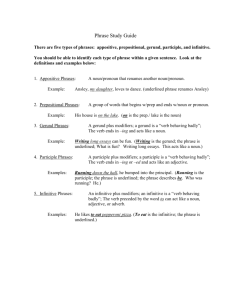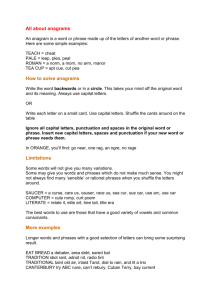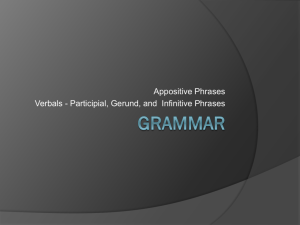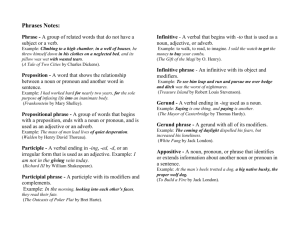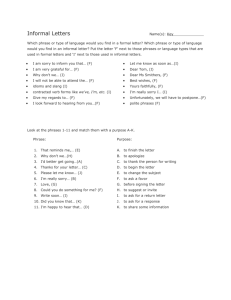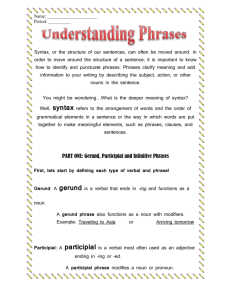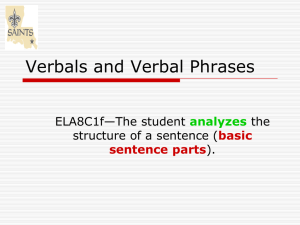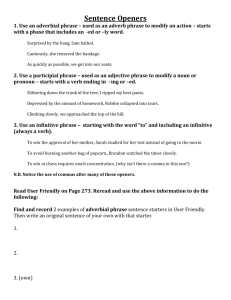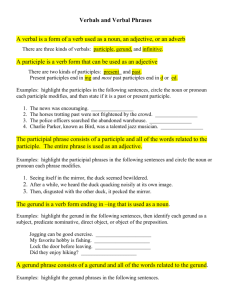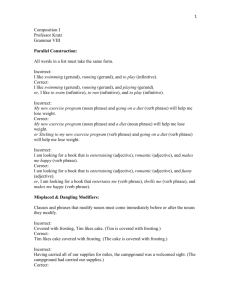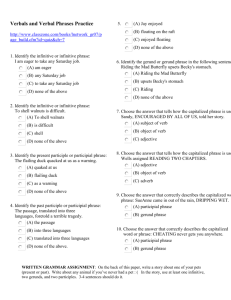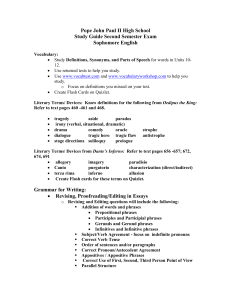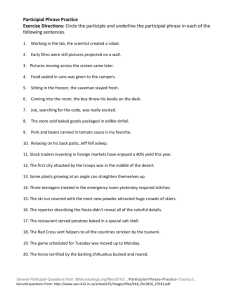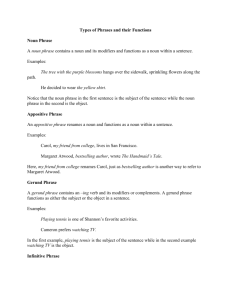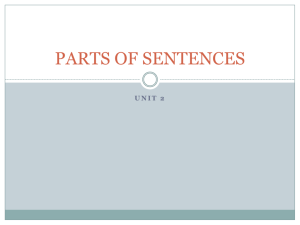Grammar Focus Phrases - Moore Public Schools
advertisement
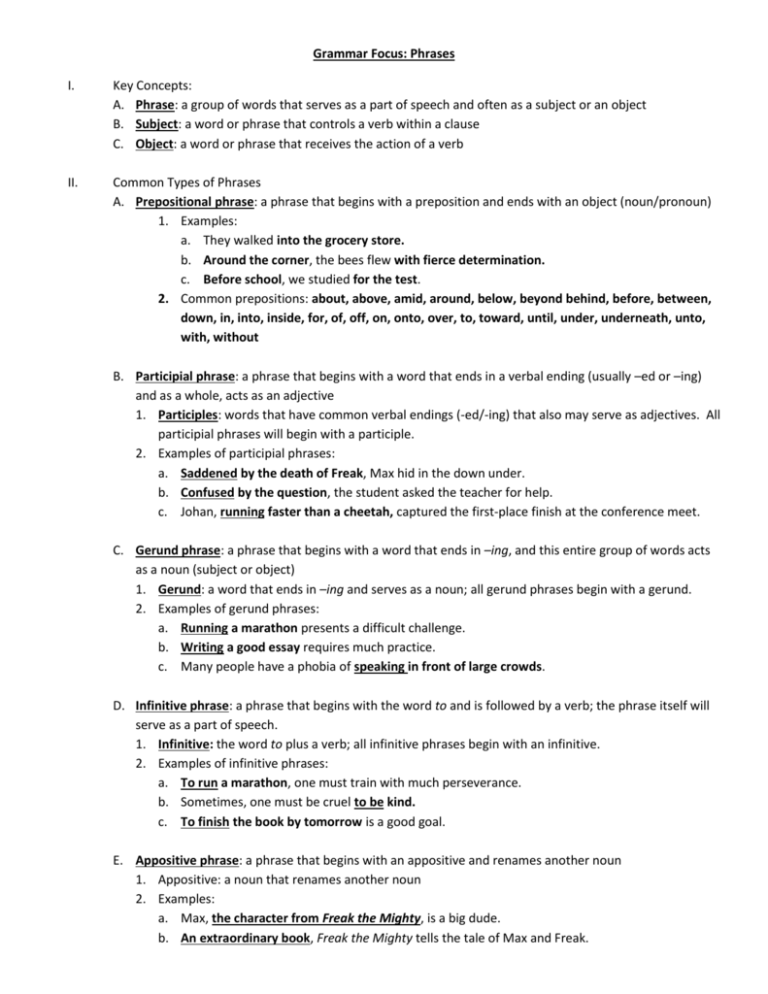
Grammar Focus: Phrases I. Key Concepts: A. Phrase: a group of words that serves as a part of speech and often as a subject or an object B. Subject: a word or phrase that controls a verb within a clause C. Object: a word or phrase that receives the action of a verb II. Common Types of Phrases A. Prepositional phrase: a phrase that begins with a preposition and ends with an object (noun/pronoun) 1. Examples: a. They walked into the grocery store. b. Around the corner, the bees flew with fierce determination. c. Before school, we studied for the test. 2. Common prepositions: about, above, amid, around, below, beyond behind, before, between, down, in, into, inside, for, of, off, on, onto, over, to, toward, until, under, underneath, unto, with, without B. Participial phrase: a phrase that begins with a word that ends in a verbal ending (usually –ed or –ing) and as a whole, acts as an adjective 1. Participles: words that have common verbal endings (-ed/-ing) that also may serve as adjectives. All participial phrases will begin with a participle. 2. Examples of participial phrases: a. Saddened by the death of Freak, Max hid in the down under. b. Confused by the question, the student asked the teacher for help. c. Johan, running faster than a cheetah, captured the first-place finish at the conference meet. C. Gerund phrase: a phrase that begins with a word that ends in –ing, and this entire group of words acts as a noun (subject or object) 1. Gerund: a word that ends in –ing and serves as a noun; all gerund phrases begin with a gerund. 2. Examples of gerund phrases: a. Running a marathon presents a difficult challenge. b. Writing a good essay requires much practice. c. Many people have a phobia of speaking in front of large crowds. D. Infinitive phrase: a phrase that begins with the word to and is followed by a verb; the phrase itself will serve as a part of speech. 1. Infinitive: the word to plus a verb; all infinitive phrases begin with an infinitive. 2. Examples of infinitive phrases: a. To run a marathon, one must train with much perseverance. b. Sometimes, one must be cruel to be kind. c. To finish the book by tomorrow is a good goal. E. Appositive phrase: a phrase that begins with an appositive and renames another noun 1. Appositive: a noun that renames another noun 2. Examples: a. Max, the character from Freak the Mighty, is a big dude. b. An extraordinary book, Freak the Mighty tells the tale of Max and Freak.
